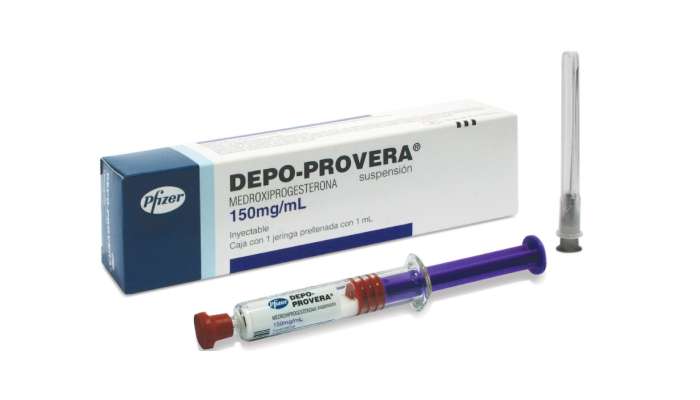Depo-Provera Meningioma or Brain or Spinal Cord Tumor Lawsuits
Millions of women worldwide rely on hormonal contraceptives to prevent pregnancy and manage various reproductive and menopausal conditions. However, emerging research suggests that prolonged use of certain progestogen-based medications, including the popular contraceptive injection Depo-Provera, may be linked to an increased risk of developing rare, usually benign, brain tumors called meningiomas. This discovery has sparked growing concerns and prompted legal action, as women who have suffered from these brain tumors seek justice and compensation. If you or someone you love developed a meningioma brain tumor after using Depo-Provera, contact us today to discuss your potential options for legal recourse.
What is Depo-Provera?
Depo-Provera, also known as depot medroxyprogesterone acetate (DMPA), is a progestin-based injectable contraceptive medication. It is widely used globally, with an estimated 74 million users worldwide. Depo-Provera works by suppressing ovulation and thickening the cervical mucus, effectively preventing pregnancy. In addition to its contraceptive use, Depo-Provera is also prescribed to manage conditions such as endometriosis, abnormal uterine bleeding, and certain types of cancer.
Alleged Side Effects Associated with Depo-Provera Use
A recent study has uncovered a concerning link between the use of Depo-Provera and the development of meningioma brain tumors.
Meningiomas are tumors that form in the tissues surrounding the brain and spinal cord, and while they are typically non-cancerous, their location can still lead to severe health complications. The research has indicated a more than fivefold increased risk of developing meningioma with prolonged use of medroxyprogesterone acetate, particularly when used for over 12 months. The alleged link between Depo-Provera and brain tumors has prompted concerns among women who have been prescribed Depo-Provera and may lead to lawsuits against Pfizer, the manufacturer of Depo-Provera.
Studies Linking Depo-Provera to Meningioma Brain Tumors
A landmark study published in the British Medical Journal in March 2024 found that the use of Depo-Provera for more than a year increased the risk of intracranial meningioma by a staggering 5.6-fold. Additionally, the study identified that two other progestogen-based medications used for menopausal hormone therapy, medrogestone and promegestone, also increased the risk of intracranial meningiomas by 4.1-fold and 2.7-fold, respectively. These findings are particularly concerning given the widespread use of Depo-Provera and the potential for a high number of attributable meningioma cases globally.
Depo-Provera Lawsuits Alleging Meningioma Brain Tumor Injuries
In light of these research findings, a growing concern has emerged among women who have experienced meningioma brain tumors following prolonged use of Depo-Provera and other progestogen-based medications. This has prompted many to consider legal actions against Pfizer, the manufacturer of Depo-Provera, citing the company’s alleged failure to provide sufficient warnings about the heightened risk of brain tumors allegedly associated with their products.
The basis of these legal actions hinges on the claim that Pfizer failed to adequately disclose the increased risk of meningioma brain tumors associated with the use of Depo-Provera. The allegations emphasize the responsibility of the manufacturer to provide clear and comprehensive information about the potential adverse effects of their products, particularly when it comes to serious health concerns such as brain tumors.
The primary objective of these potential Depo-Provera lawsuits is to pursue accountability from Pfizer for the alleged negligence in adequately warning consumers about the elevated risk of brain tumors associated with Depo-Provera. By holding the manufacturer accountable, these legal actions aim to bring attention to the potential dangers of progestogen-based medications, thereby ensuring that similar incidents are prevented in the future.

Find Out How We Can Help
"A landmark BMJ study, conducted by researchers at France’s National Agency for Medicines and Health Products Safety, examined data from over 18,000 women who had undergone surgery to remove intracranial meningiomas between 2009 and 2018. By comparing each case with five healthy, matched controls, the researchers uncovered a startling correlation between prolonged progestogen use and an increased risk of these brain tumors."
Find Out How We Can Help
Pfizer may be liable for allegedly failing to adequately warn patients and healthcare providers about the potential for Depo-Provera to increase the risk of meningioma brain tumors. If you or a loved one has been diagnosed with a meningioma after using Depo-Provera, you may be entitled to financial compensation for your injuries and medical expenses.
We understand the emotional and physical toll these brain tumors can take on affected individuals and their loved ones, and we are here to guide you through the legal process and ensure that your voice is heard. Contact us today and let us help you explore your options for seeking justice and the compensation you deserve.
Did you or a loved suffer mesothelioma, lung cancer or another asbestos induced illness following direct or indirect asbestos exposure?
Find out if you may qualify for compensation.
Find Out MoreConsumer Safety Watch offers safety advocate services and attorney referral services for patients throughout the United States including the states of Alabama, Alaska, Arizona, Arkansas, California, Colorado, Connecticut, Delaware, Florida, Georgia, Hawaii, Idaho, Illinois, Indiana, Iowa, Kansas, Kentucky, Louisiana, Maine, Maryland, Massachusetts, Michigan, Minnesota, Mississippi, Missouri, Montana, Nebraska, Nevada, New Hampshire, New Jersey, New Mexico, New York, North Carolina, North Dakota, Ohio, Oklahoma, Oregon, Pennsylvania, Rhode Island, South Carolina, South Dakota, Tennessee, Texas, Utah, Vermont, Virginia, Washington, West Virginia, Wisconsin and Wyoming.
Consumer Safety Watch offers consumer safety advocate services or can help you find an attorney throughout the United States including the following cities: Albuquerque, NM; Arlington, TX; Atlanta, GA; Austin, TX; Baltimore, MD; Boston, MA; Charlotte, NC; Chicago, IL; Cleveland, OH; Colorado Springs, CO; Columbus, OH; Dallas, TX; Denver, CO; Detroit, MI; Fresno, CA; Fort Worth, TX; Indianapolis, IN; Honolulu, HI; Houston, TX; Jacksonville, FL; Kansas City, KS; Kansas City, MO; Las Vegas, NV; Long Beach, CA; Los Angeles, CA; Louisville, KY; Memphis, TN; Mesa, AZ; Miami, FL; Miami, OH; Milwaukee, WI; Minneapolis, MN; Nashville, TN; New York City, NY; Oakland, CA; Oklahoma City, OK; Omaha, NE; Philadelphia, PA; Phoenix, AZ; Pittsburgh, PA; Portland, OR; Sacramento, CA; San Antonio, Tx; San Diego, CA; San Francisco, CA; San Jose, CA; Seattle, WA; St. Louis, MO; Tampa, FL; Tucson, AZ; Tulsa, Virginia Beach, VA; Washington, DC; Wichita, KS.
This website is not affiliated with any pharmaceutical or medical device company or any trademarked product. Results are not guaranteed. This website provides a free matching service and is not responsible for information or services from third party providers. Consumer Safety Watch is not a law firm. Every case is different and services available can vary.


